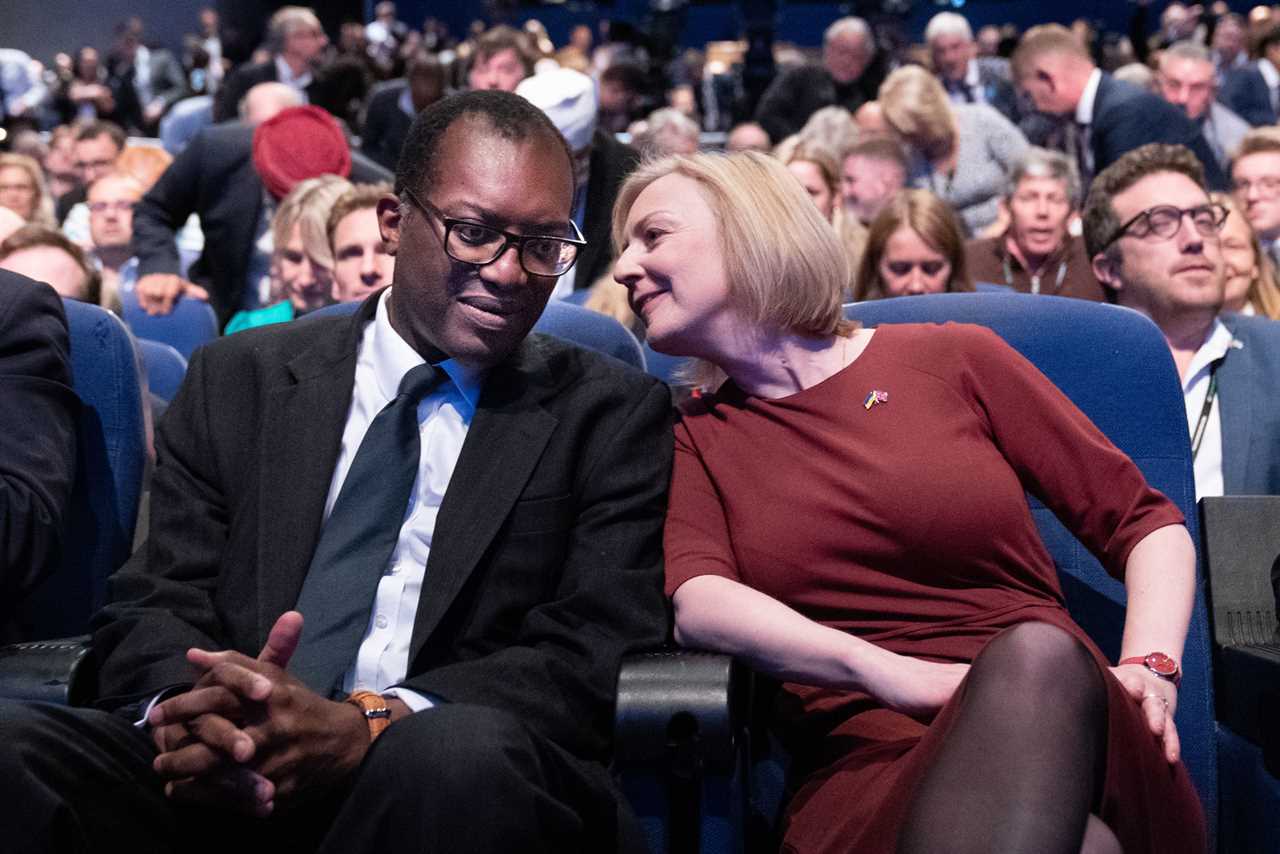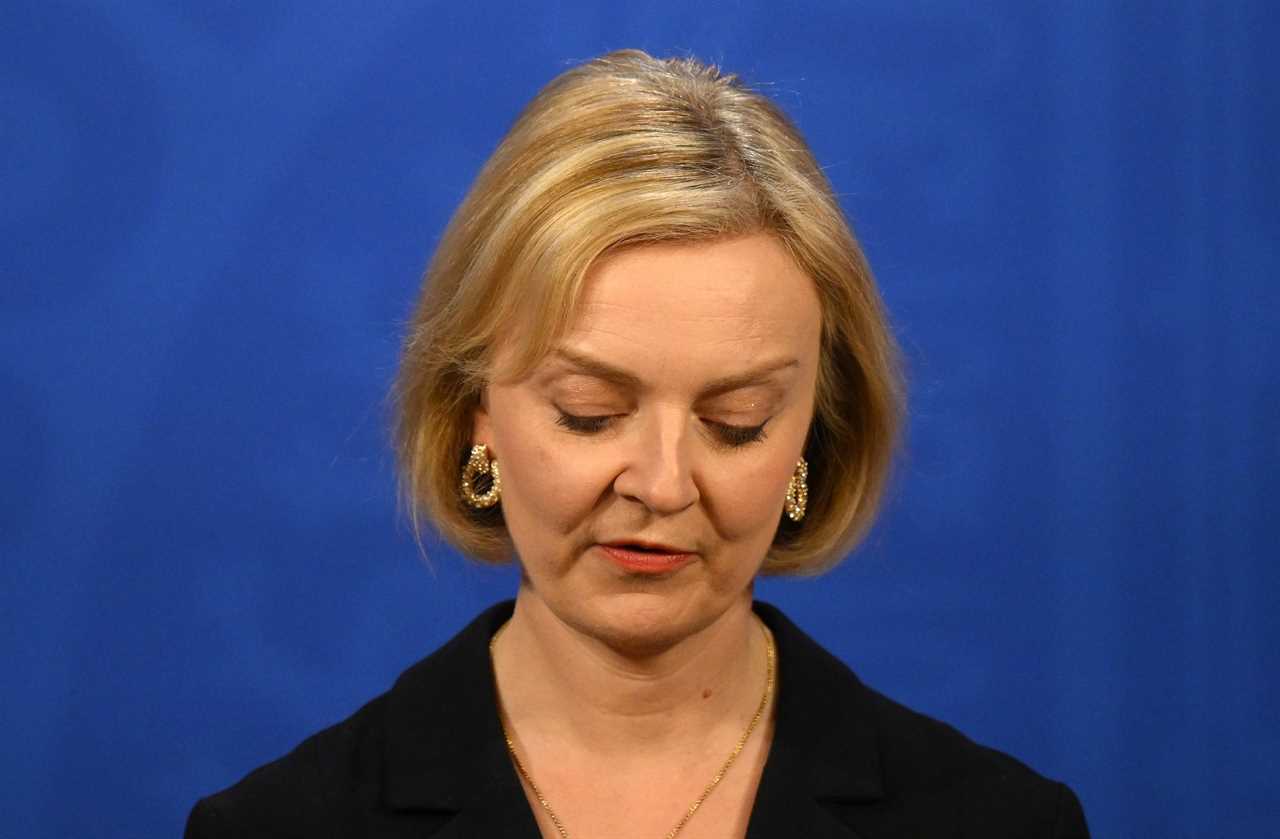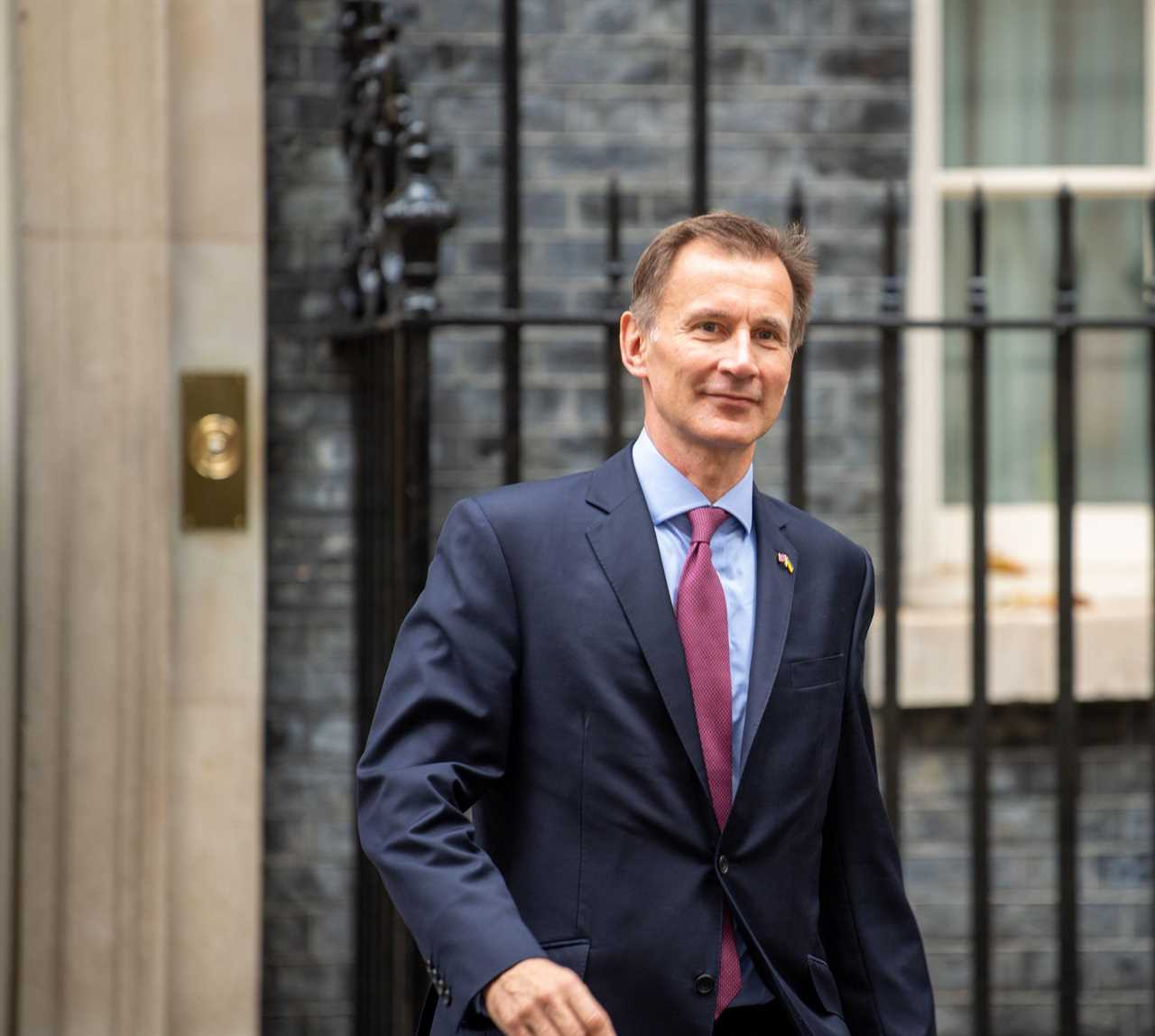DOOMSDAY warnings of an economic downturn that would take 20 years to recover from convinced Liz Truss to ditch her closest pal Kwasi Kwarteng and blow up her Government.
We can reveal for the first time the true scale of the financial horror the short-lived Prime Minister and her disastrous mini Budget risked.

Liz Truss tearfully told Kwasi Kwarteng that the mob was already ‘coming for her’ as she sacked him as Chancellor

Treasury chiefs told the PM that the UK would struggle to sell its debt – meaning it would have a similar status as that of a ‘Third World country’

A No10 source said that when Hunt was made Chancellor, the strategy was to ‘pin the s**t on him’
Panic-stricken Treasury chiefs told the PM the UK risked plunging to the status of a “Third World country” unable to sell its debt on global bond markets, with the City “reduced to rubble”.
Her dream of slashing taxes was cooked up with her Chancellor in secret — and many of her aides reacted in shock when they were told of its scale just hours before it was unleashed on the country last month.
But abandoning it meant a weeping Truss had to sack her closest pal of more than a decade, the man with whom she had slowly but determinedly risen the ranks and seized power.
While friends of both deny constant Westminster rumours they were anything more than political bedfellows, the scale of the betrayal left Truss in tears as she conceded her days in power were doomed.
“They’re already coming for me, Kwasi,” she sobbed as she asked him to leave his job.
New book Out Of The Blue lifts the lid on the disastrous final days of Truss’s 49-day premiership that ended this week.
‘They sacred the s**t out of her’
In it, Kwarteng recalled: “I remember saying to her in our first year in Parliament, you’re going to get to the top because you’re going to stick around longer than anyone else.”
But in the end her premiership folded in just weeks after the pair unleashed economic chaos.
The Office of Budget Responsibility (OBR) told Kwarteng bluntly that there was a £72billion black hole in the nation’s finances as a direct result of his mini Budget.
The not so “mini” Budget cut income tax, National Insurance, stamp duty and taxes on the self-employed as well as abolishing the 45p tax rate paid by the super rich and scrapping the planned rise in corporation tax.
But an email sent to the Treasury by the OBR on October 7 set in train two weeks of utter meltdown in Downing Street.
The scale of the spending cuts that would be needed simply to stop debt interest bankrupting the country was not just eye-watering but politically impossible.
Yet, in spite of this, Truss told the House of Commons at PMQs on October 12 that she was “not planning public spending reductions”.
The line sparked panic among some of her No 10 aides, who knew that while spending would, technically, go up, double-digit inflation would mean real-term spending cuts.
Some even feared she might “be done in for lying to the House” and face a parliamentary probe like her predecessor Boris Johnson.
Seemingly heedless of the mounting chaos, Kwarteng flew out to the IMF in Washington.
There, he was subjected to a series of embarrassing meetings in which officials repeatedly attacked his Government’s plans on the world stage.
With inflation rampant, the global experts held up Britain as an example of how not to handle the crisis.
But the danger to Kwarteng’s career lay back in London. In his absence, the mandarins had turned the screw.
Simon Case, the Cabinet Secretary, and James Bowler, the head of the Treasury, urged Truss to jettison her plans in order to restore some stability.
“On October 13 and 14 we were being briefed that the UK was about to become a Third World country by the Treasury,” a Downing Street source says.
“Bowler, all the Treasury officials, Case, they all sat around the Cabinet table and said to the PM, ‘Unless you junk [your plans for] corporation tax, we are going to have the most catastrophic meltdown; it will take 20 years to recover’. They scared the s**t out of her basically.”
Truss initially greeted the warning with incredulity, and “railed against” what she considered a Bank of England and Treasury “stitch-up”.
One No10 aide involved in the discussions recalled: “Thursday 13th was terrible.
“They said the Pound was basically going to crash to such a level that we would struggle to sell our debt, in the way a Third World country does.
“Basically, Britain was going to become like rubble. It was impossible to know who to believe at this stage.”
Truss confessed privately that, despite her scepticism, “the problem is that the last time I ignored all these people they were right”.
Kwarteng’s mini Budget had scrapped plans to raise corporation tax from 19 per cent to 25 per cent, which was set to bring in some £18billion a year by 2026.
As the biggest cost announced, it was now in the official sights for a U-turn.
But it would barely dent the size of the OBR’s predicted black hole, with markets concluding the rest of the gap could not be filled with spending cuts alone.
“Corporation tax was sitting there and the Treasury bounced us into it by briefing the papers on that Wednesday night into Thursday,” the No10 source continues.
“Simon Case was pretty exercised about that, but Truss was boxed in and we had no choice.
“If we hadn’t done an about-turn, the market would have slumped again, because they’d rallied on the back of reversing the corporation tax cut.”
‘She put knife through his shoulder blades’
With markets, officials and economists all panicking, political aides warned Truss that she would not have the numbers in the Commons to pass her tax cuts in a Finance Bill.
Caught between the rock of mercenary traders in the City and the hard place of mutinous Tory MPs in Westminster, it began to dawn on Truss that sticking to her tax-cut package risked her becoming the shortest-ever-serving Prime Minister in history.
Away on holiday in Greece, the powerful boss of the backbench 1922 Committee, Sir Graham Brady, had made his disquiet known in a number of calls with her.
Just as he had warned the PM during the Tory Conference that the ditching of the 45p tax rate had to be scrapped if she wanted to survive, so he counselled Truss that Kwarteng had to be offered up as a sacrifice if her administration was to remain in any way credible.
Deputy PM Therese Coffey was also said to be “determined to get Kwasi”, according to one source. Not that Ms Truss needed much persuading.
“She put the knife through his shoulder blades while he was still in the departure lounge,” another source told us.
A third added: “She was already thinking about it and then Brady, [Parliamentary Secretary to the Treasury] Wendy Morton, Therese and [Deputy Chief Whip] Craig Whittaker all told her to sack him.
“She kept saying, ‘This is so painful, so painful’.”
With Kwarteng summoned home early from the US on October 14, shortly after he landed back at Heathrow, Twitter was already alive with the news he was to be sacked after just 38 days in the job.
At a brief meeting across the Cabinet table, Kwarteng attempted to warn the “teary” PM that if she sacked him she would be next in line for the baying mob.
“They’re already coming for me, Kwasi,” she feebly replied in a rare display of emotion.
Elected to Parliament on the same day, the pair had been close friends for over a decade.
They were co-authors and co-founders of the Free Enterprise Group, as well as allies throughout the long years of Theresa May and Boris Johnson.
They had worked “hand in glove” together and often in secret on their mini Budget and yet she dismissed him in a ruthless bid for self-survival.
Politically weakened, Truss then turned to Jeremy Hunt — the man whom she had mocked privately in her leadership race — to help calm her party.
When Hunt had texted Truss in July to tell her he was backing rival Rishi Sunak, she joked to aides it was “another nail in Rishi’s coffin”.
Now she was turning to him to save her skin.
By appointing Hunt — the embodiment of Tory orthodoxy — the Trussonomics revolution was over before it even begun.
Lightning rod for painful decisions
In their first call, Truss told Hunt she wanted a “Dave and George-style relationship” in reference to the tight-knit partnership of Cameron and Osborne.
Hunt told her: “That’s the only way I know how to work.”
She replied: “Look, we just need to be in lockstep. You’ve got freedom, I just need to know everything that is going on.”
Hunt’s allies boasted that he was the new CEO of the Government to Truss’s chairman, annoying some supporters of the PM.
But others positively embraced the idea of Hunt being a new lightning rod for the painful decisions to come.
A No10 official admitted: “Basically the strategy was, ‘Let Jeremy front all the bad s**t.
“We were kind of laughing at this narrative that ‘Jeremy is the chief executive’.
“Fine, f*** it, she’s the PM, this keeps her in post.
“We just thought, ‘Use Jeremy as a human shield’. We wanted him to own all the bad s**t.
“And we thought it would work, to be honest. But it didn’t.”
Within days Hunt would rip up the rest of the mini Budget but it would be too late to save the mortally wounded Truss.
- Out Of The Blue: The Inside Story Of The Unexpected Rise And Rapid Fall Of Liz Truss, by Harry Cole and James Heale (HarperCollins, £9.99, eBook, November 1, and £20, hardback, November 24).






